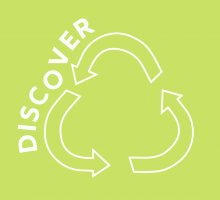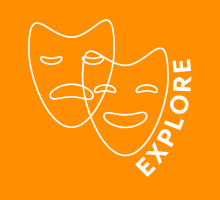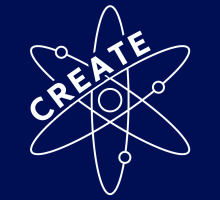Undergraduate student research and creative projects may be produced by students at all levels in classes, labs, recitals, as part of a distinction or thesis program or independently. Participating in undergraduate research helps you apply what you are learning in class, find a mentor, improve your critical thinking and problem-solving skills, and pursue a topic that fascinates you.
Upcoming Spring Deadlines
SOURCE Fellowship (Funding for up to three semesters between Summer 2026 and Spring 2027)
- Funding for original and student-led research/creative projects that will substantially develop a student’s research skills, engage with methods of their discipline, and culminate in a deliverable (up to $5,000)
- Intent to Apply due Feb. 12, 2026
- You must submit an intent to apply in order to be considered for the SOURCE Fellowship
- Application and faculty mentor recommendation due Feb. 26, 2026
- Intent to Apply
- Application Guide
- Proposal Drop-in Hours Sign Up
- Receive feedback on your SOURCE proposal, sign up at the link above:
- Tuesday, February 17th, 2pm-4pm
- Thursday, February 19th, 11am-1pm
- Monday, February 23rd, 11:30am-1:30pm
- Tuesday, February 24th, 10am-12pm
- Wednesday, February 25th, 11:30am-1:30pm
- Receive feedback on your SOURCE proposal, sign up at the link above:
SOURCE Bridge Award (Funding for Summer 26)
- Short-term, renewable support for students at all levels to pursue mentored research experiences (up to $2,000)
- Application and faculty mentor recommendation due Apr. 2, 2026
SOURCE Spring Showcase
- Register to present at the SOURCE Spring Showcase. All undergraduate students participating in research are eligible to participate and need not be funded by or participate in SOURCE programs. Work in progress is welcome!
- Register to Present
- Thursday, March 26th, 4:00-6:00pm – Orange Talks & Awards Ceremony – Lundgren Room, Life Sciences
- We will present the following awards at this event, find the nomination links below:
- Award for Excellence in Undergraduate Research MentoringNomination Form
- Award for Innovation in Undergraduate Research Support Nomination Form
- CTLE & SOURCE Award for CURE Teaching Nomination Form
- We will present the following awards at this event, find the nomination links below:
- Friday, March 27th, 2:00-4:00pm – Interactive Table & Poster Session – Life Sciences Atrium
CFSA-SOURCE Graduation Recognition Cord
- Recognition for students that have participated in undergraduate research and/or national fellowships programs. Students that meet all requirements will receive a cord to wear at commencement.
- Application due April 23, 2026
- Apply Now
Undergraduate Research FAQs
What is research and creative engagement?
Undergraduate research work takes many forms but all follow a similar structure:
- Beginning with a sense of curiosity in the exploration of a topic of interest
- An understanding of the current landscape of a scholarly, professional or creative field of study.
- Designing of a study or project using the methods and tools of a discpline to present evidence that responds to a question or theme.
- All undergraduate research students are supported by a faculty mentor in their field.
- Student research and creative projects may be produced by students at all levels in classes, labs, recitals, as part of a distinction or thesis program, or independently.
Why should I participate in undergraduate research?
Participating in undergraduate research allows you to:
- Apply your knowledge to real-world problems and issues
- Develop a strong faculty mentor relationship
- Improve your problem-solving and creative thinking skills
- Explore potential career areas
- Develop skills you can use on the job market or in grad school
- Explore a topic you find fascinating and participate in the creation of new knowledge
How does undergraduate research work at Syracuse University?
- Students are guided by a faculty mentor (typically a tenured or tenure-track professor) or research staff member.
- In humanities, communications/journalism, business/management, social sciences, arts: students work as part of a research team or one-on-one with a professor to either assist with an ongoing project or design an independent project.
- In STEM fields: students work as part of a lab team, led by a professor (or Primary Investigator, “PI”): students assist with ongoing projects and may take leadership on part of the lab’s work.
- Students may also work off-campus, with a community organization, another university, or do research as part of the study abroad experience.
What are some examples of undergraduate research?
- Miguel Guzman, ’24 – lab research on bioactive protein-cholesterol-based nanoparticles
- Sophie Clinton, ’24 – conducted social science research while abroad in Santiago, Chile
- Ngai Lan Tam ’23 – created an exhibition with structural design, film and performance
- Fátima Bings Martínez ’24 – worked as a research assistant for a literary journal
- Ruchatneet Printup ’23 – directed a film set in his Native community
How do I find a research topic or area of interest?
Jot down a few notes in response to these prompts:
- Readings or lectures from a class that sparked your interest and made you want to learn more or share with a friend
- Problems or issues that you’d like to contribute to solving or improving
- Gaps in your education
- Skills that you’re interested in developing
- Passions, hobbies, and personal interests
- Goals or outcomes that could build your portfolio and be shared with a future employer or graduate school
Connect with others
- Talk to your professors during their office hours about how they first discovered their research interests
- Get inspired at a student research presentation event on campus: the SOURCE Fall Expo, Spring Showcase, or Summer Symposium, or a school/college event
- Go to lectures and talks on campus and ask questions
- Chat with fellow students doing research (you could start with SOURCE Student Research Mentors) about how they found their focus
- If you have a specific post-graduate goal (career, graduate study, etc.), speak with career and academic advisors about the skills you should be building




